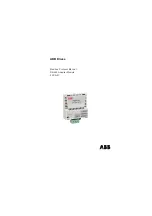
1TfQ^SUTC_VdgQbU6UQdebUc
=UTGU\T# %?`UbQd_bµc7eYTUD)## "
%#
= #" "%1`bY\" "
•
Initial C-Factor = 12,450 A. / 65% = 192.
•
Final C-Factor = 14,300 A. / 65% = 220.
C-Factor can be used to alert the maintenance staff of a welder’s
deteriorating secondary circuit. You can establish upper and
lower C-Factor limits that correspond to a current threshold, to
meet the needs of the welding process.
The MedWeld 3005 also provides Function #97 (C-FACTOR
LIMIT: HI=000 LO=000) to define the high and low C-Factor
limits for a weld schedule. Use to determine when the welding
conditions indicate the need for maintenance.
When the weld processor detects that the high or low C-Factor
limits were exceeded, it activates the High or Low C-Factor Limit
condition (which can be defined as either a Fault or an Alert in
the setup parameters).
•
Low C-Factor is a monitoring condition and usually defined
as an ALERT
•
High C-Factor is a welding quality issue, and usually defined
as a FAULT.
/RZ&)DFWRU/LPLW
The low C-factor limit detects cable and connection deterioration.
'HWHUPLQLQJD/RZ/LPLW
Suppose a weld schedule requires 14,000 A. at the end of a
stepper program. However, you do not want to exceed 90% of the
tool’s maximum current capacity.
This means that the lowest full-current capacity of the tool should
be 15,555 A. (14000/90=155.555). This makes the low C-Factor
limit 155.
+LJK&)DFWRU/LPLW
The high C-factor limit can detect secondary shunting paths.
'HWHULJK/LPLW
A spot weld requires 10,000 A. The maximum current achievable
is 20,000 A. Then the C-Factor is 200.
However, if shunting conditions are simulated and the welds
become substandard at C-Factor of 230, then the High C-Factor
limit can be set to 230.
Содержание MedWeld 3005
Страница 2: ...YY UTGU T UbQd_bµc 7eYTU V_b D 1 bY ...
Страница 84: ...3_ e YSQdY_ c Q T 9 UTGU T UbQd_bµc 7eYTU D 1 bY ...
Страница 110: ...GU T CSXUTe Uc UTGU T UbQd_bµc 7eYTU D 1 bY ...
Страница 126: ...1TfQ SUT C_VdgQbU 6UQdebUc UTGU T UbQd_bµc 7eYTU D 1 bY ...
Страница 144: ...CUde QbQ UdUbc UTGU T UbQd_bµc 7eYTU D 1 bY ...
















































